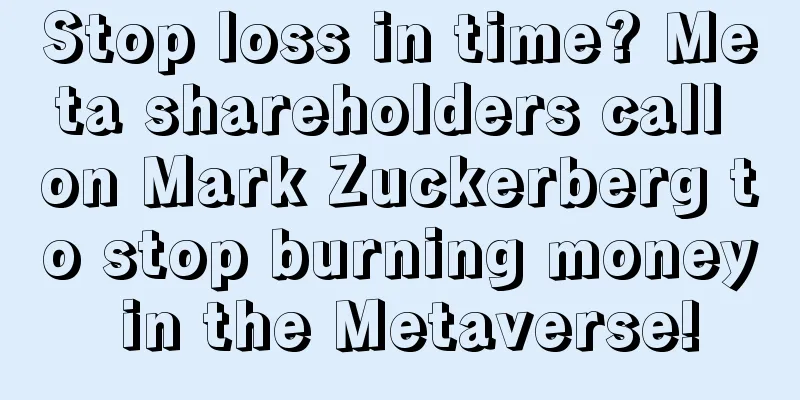Analysis of the US beauty and personal care e-commerce market trends! E-commerce platforms are the preferred purchasing platform

|
It is learned that a survey recently released by market research company Ideoclick shows that online sales in the health and beauty sector in the United States are expected to increase from 16.5% globally in 2020 to 23.3% in 2025. The survey results show that the majority of consumers purchase these products online (67% for beauty products and 80% for health and personal care products). Here are some key trends the survey uncovered: 1. Social media positively impacts brand awareness, but does not drive purchases: 41% of beauty consumers and 33% of health and personal care consumers say they are more likely to make a purchase as a result of an ad they saw on a social media platform. However, only 7% of beauty consumers and 5% of health and personal care consumers say social media is their preferred e-commerce platform for purchasing these products. According to Statista, consumers will spend an average of 145 minutes per day on social media in 2020. Brands that aren’t already advertising on social media should consider trying social advertising to capitalize on its influence on customers. 2. Consumers turn to online reviews, influencers, and product pages Beauty consumers mostly get their buying advice from online reviews and influencers, and rarely from in-store employees. 49% of beauty product consumers trust online reviews, with 38% saying they trust them somewhat and 11% saying they trust them very much. 42% of health and personal care product consumers trust online reviews, with 34% saying they trust them somewhat and 8% saying they trust them very much. As consumers increasingly trust influencers, brands can consider working with online influencers to get their products in front of a wider audience. Brands should also make full use of their product pages, ensuring that the information on these pages is accurate and focuses on product features that help them stand out from competitors. 3. Similar products and counterfeit products raise questions 54% of health and personal care consumers are concerned (35%) or very concerned (19%) about look-alike/counterfeit products. 52% of beauty product consumers are concerned (32%) or very concerned (20%) about look-alike/counterfeit products. Counterfeit products are a widespread problem for beauty, health and personal care e-commerce brands, and the problem depends on consumer trust. Consumers often cannot distinguish between genuine products and look-alike versions of well-known brands, and brands can enhance customer trust by sharing advertising content that highlights their authenticity and demonstrates their unique value. 4. Retail websites are the top choice for e-commerce shoppers, with DTC and social media purchases lagging For 79% of consumers, the preferred e-commerce platform for purchasing beauty products online is the retailer's website (e.g., Target, Amazon, Walmart, etc.), 14% said DTC websites, and only 7% said social media. When it comes to health and personal care products, 86% of consumers prefer to purchase through retail websites compared to DTC websites (9%) and social media (5%). Brands can take advantage of these customer preferences by optimizing their presence on retailers’ websites like Amazon. Businesses should ensure their product pages are optimized with targeted keywords for maximum visibility. Additionally, online consumers typically search for two to four keywords that describe the problem they want solved, so it’s critical for businesses to target keywords to stand out from the competition. Highly specific keywords are much less competitive and costly than broader, short-tail keywords. Businesses can make the most of their keyword budget by using unique and targeted long-tail keywords to drive sales. For example, a vegan cosmetics brand should use terms like “black vegan liquid eyeliner” or “zero cruelty blush brush” instead of generic terms like “eyeliner” or “makeup brush.” Editor ✎ Xiao Zhu/ Disclaimer: This article is copyrighted and may not be reproduced without permission. |
<<: Sellers please check! P&G recalls 32 types of dry shampoo and conditioner sprays!
Recommend
Americans also want to buy despite high inflation! This year's back-to-school season children's shoe sales are expected to grow strongly!
<span data-docs-delta="[[20,"获悉,根据美国鞋类分销商和...
What is eMAG? eMAG Review
eMAG is the largest online retailer in Romania. It...
What is Pinmanman? Pinmanman Review
The Pinmanman platform (WeChat mini program: Pinma...
Etsy Q3 financial report interpretation: three growth drivers that cannot be ignored
It is learned that Etsy recently announced its thi...
What is Kmart? Kmart Review
Kmart is the largest discount retailer in the Unit...
What is a Shopee order? Shopee Order Review
Introduction to the status of Shopee orders and th...
What is KKR Group? KKR Group Review
KKR Group, translated as "Kohlberg-Kravis&quo...
Shenzhen big seller was exposed for defaulting on payment and forcing employees to transfer positions? Sellers cried as inventory capacity dropped suddenly!
Three quarters of 2021 has already passed in the b...
What is OpenCart? OpenCart Review
OpenCart is an easy-to-use, powerful open source o...
Amazon's top five best-selling products
US Station Battery Kitchen and dining supplies Hom...
There is a choking risk! 2,600 domestic toys are urgently recalled!
<span data-shimo-docs="[[20,"获悉,据外媒报道,近日美国...
What is Sellzone? Sellzone Review
Sellzone is an Amazon marketing tool for Amazon bu...
Amazon scans accounts again to check for fake orders! Some sellers have received warning letters
In the past two days, the outside world has been ...
What is TradeMore? TradeMore Review
TradeMore is a product of Hangzhou Gangren Network...
On Amazon’s front page, there are new changes to the search page!
A little below the search bar on the right, there ...









